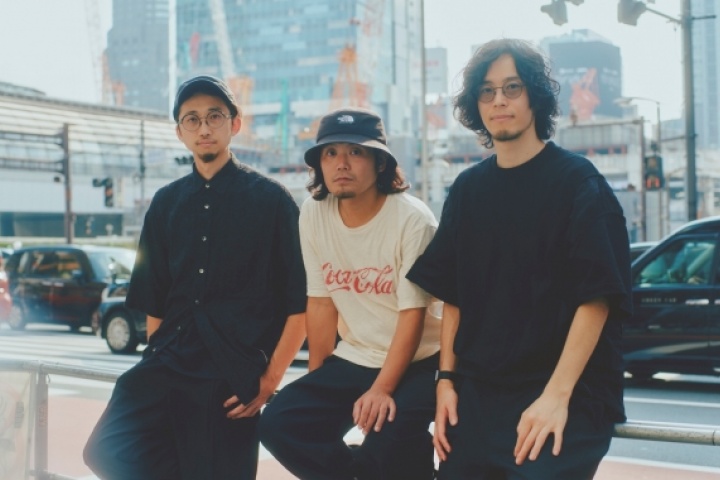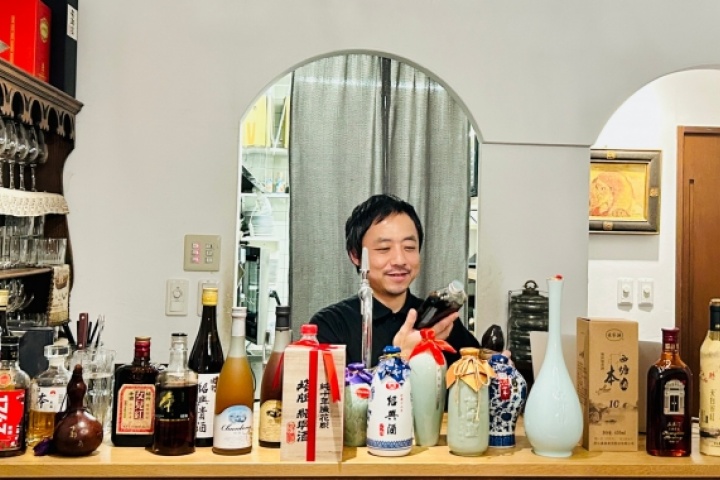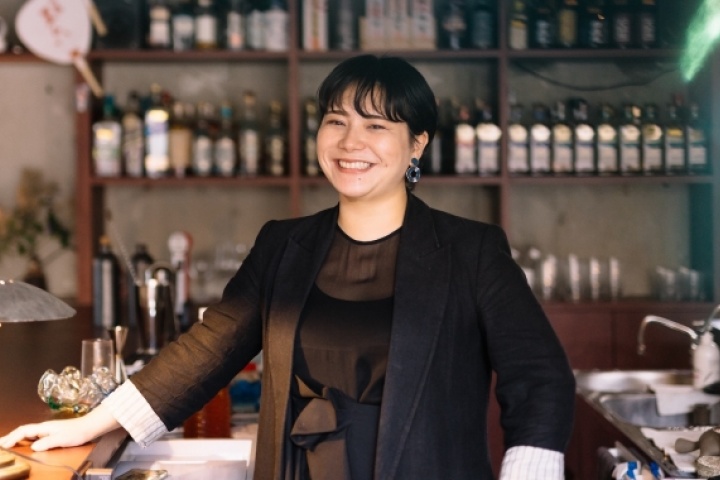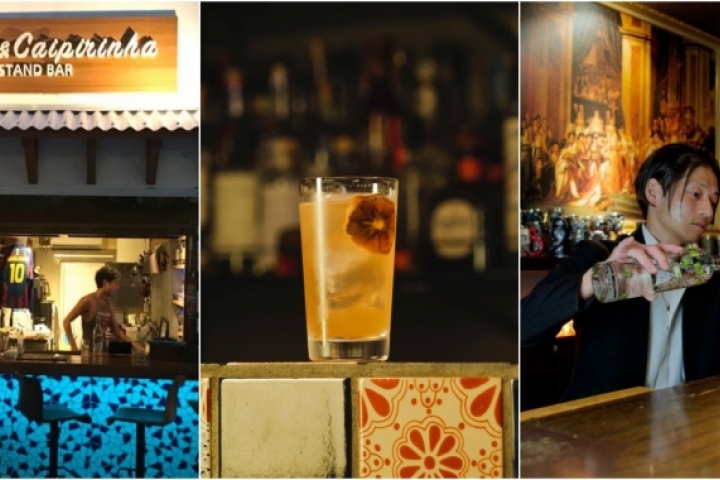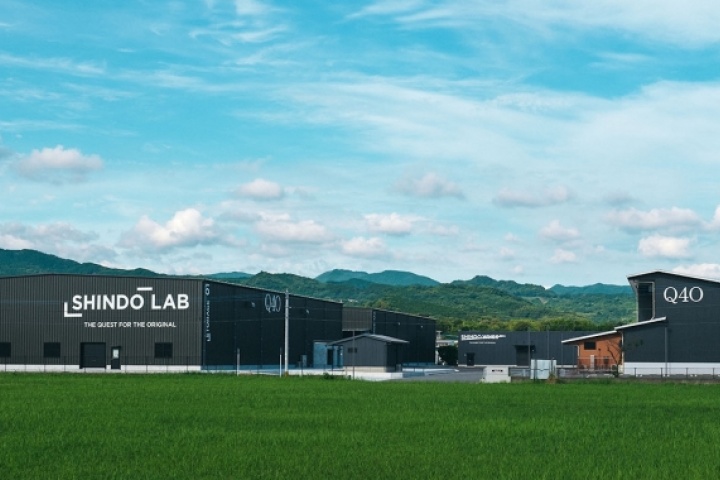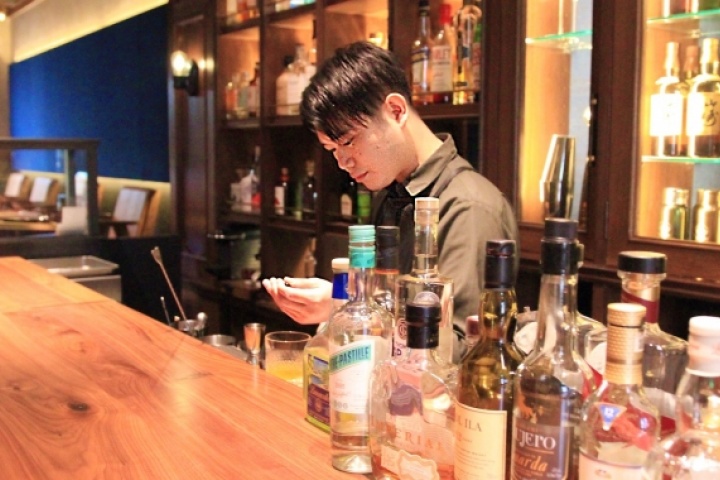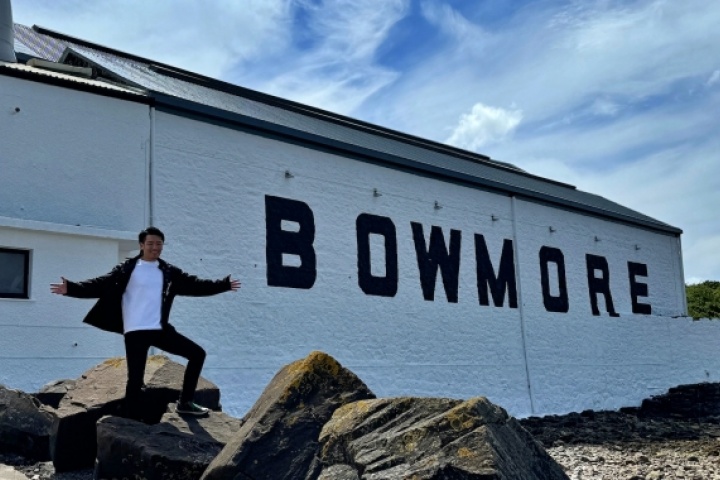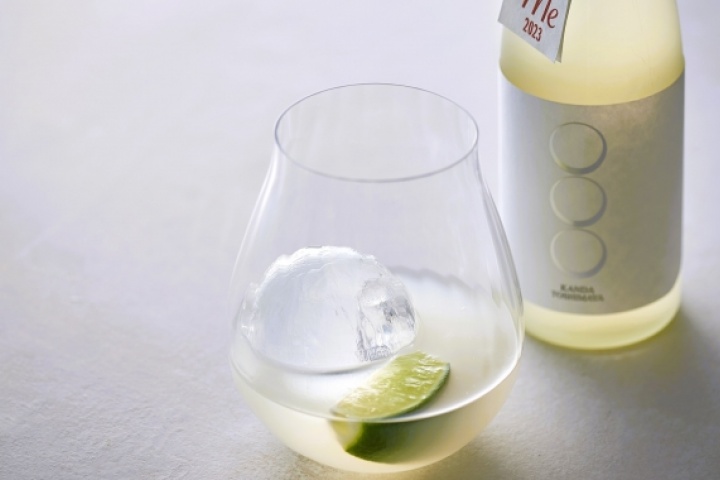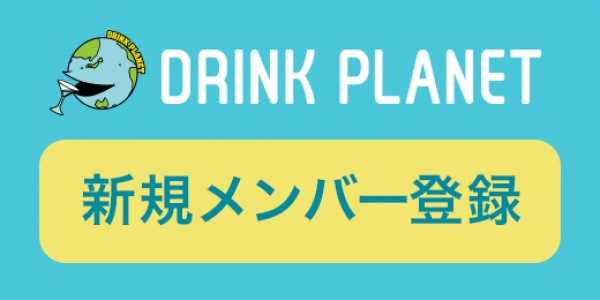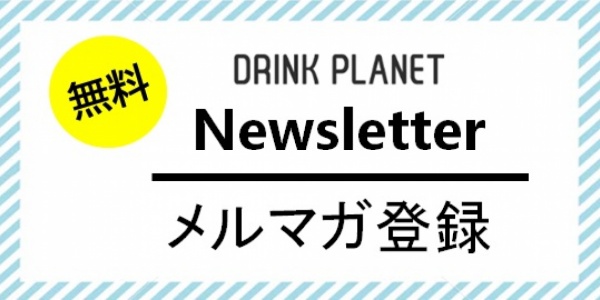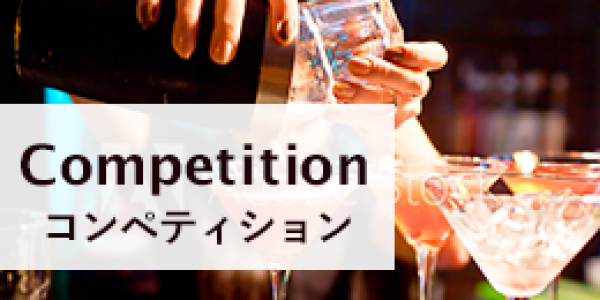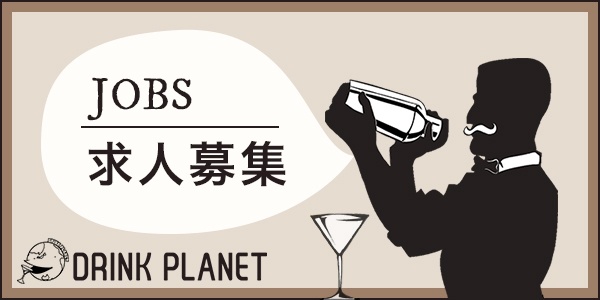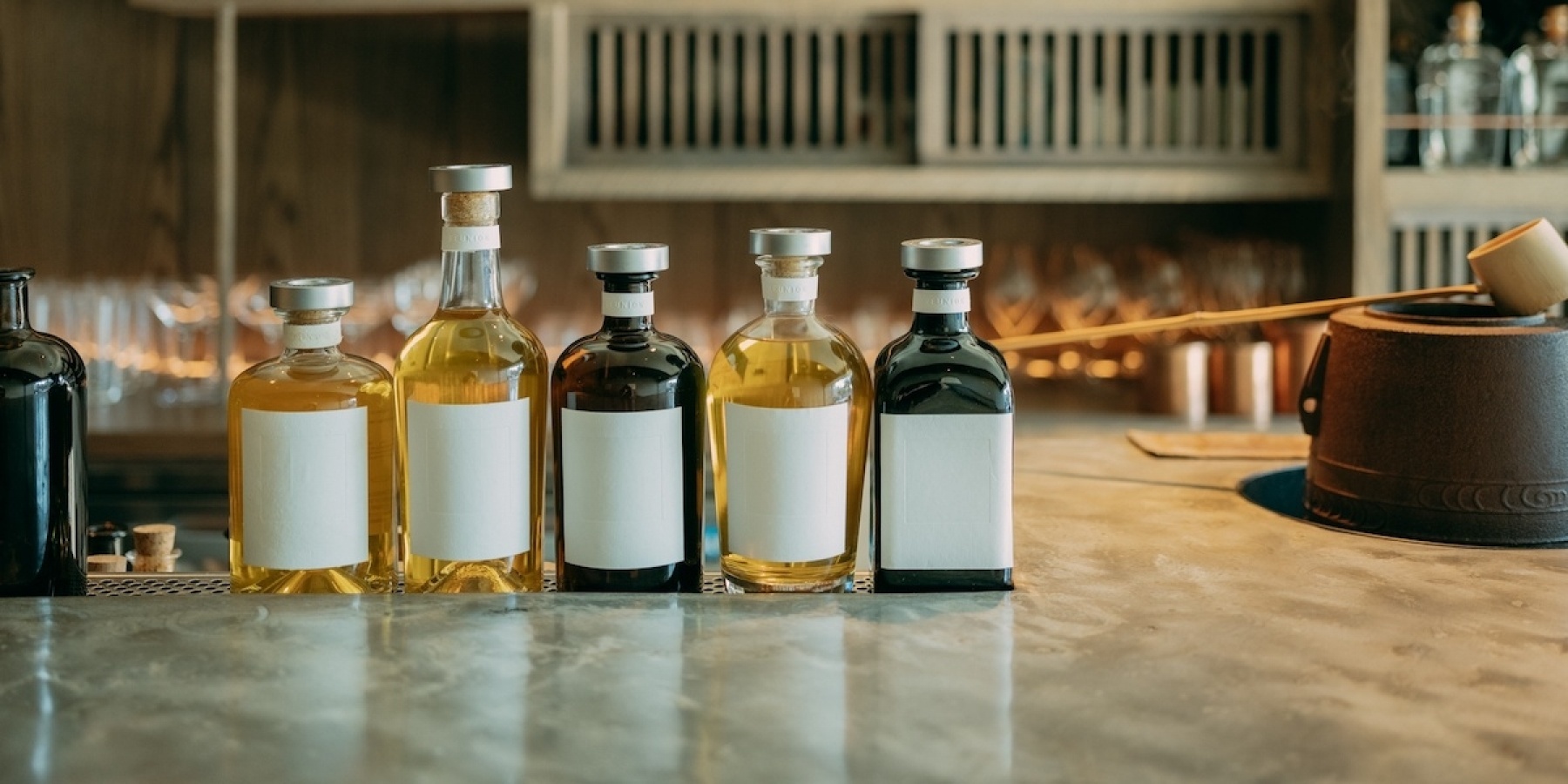
PICK UP
Sustainability from a bar's perspective
REISHI GIN launches a reusable bottle project!
- Part 2 -
#Pick up
服部竜大/Hattori Ryuta from「REUNION(WWWE)」
writer:Ryoko Kuraishi
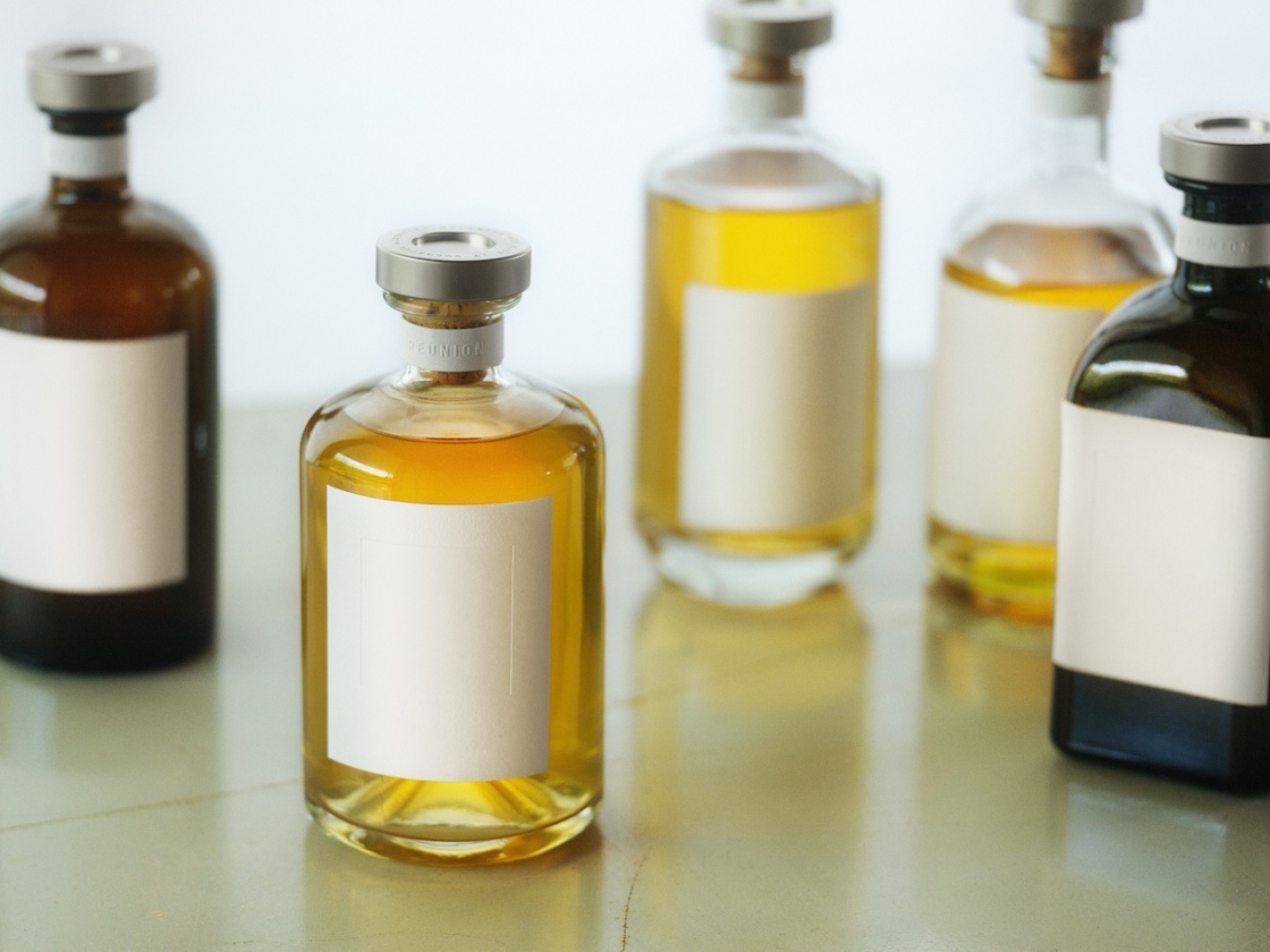
A variety of bottles in different shapes and colors with matching white labels and caps are on sale since October, "REISHI GIN w/ REUSED BOTTLE," each 6,600 yen.
October is "Reuse, Reduce, Recycle (3R) Promotion Month" designated by the Ministry of Economy, Trade and Industry and other related ministries.
REISHI GIN has started the "Reuse Bottle Project" on October 1 to reuse and sell bottles of its own and other brands.
REISHI GIN is a new spirit launched this spring.
REISHI GIN is produced by REUNION, a wellness brand whose concept is to "MAKE IT COLORFUL" and is involved in the production of sake from farming to brewing, aiming to be friendly to the global environment and to people.
The company believes that "earth- and people-friendly" spirits can be cultivated in an environment where water, soil, and soil microorganisms are healthy, and the base spirit ingredient, Kogane Sengan, is cultivated using regenerative agriculture (environmentally regenerative agriculture).
The CO2 generated during production is returned to the soil to become carbon neutral.
We also take a human wellness approach by using Japanese Ganoderma lucidum as a key botanical," says Tatsuhiro Hattori, Founder and CEO.
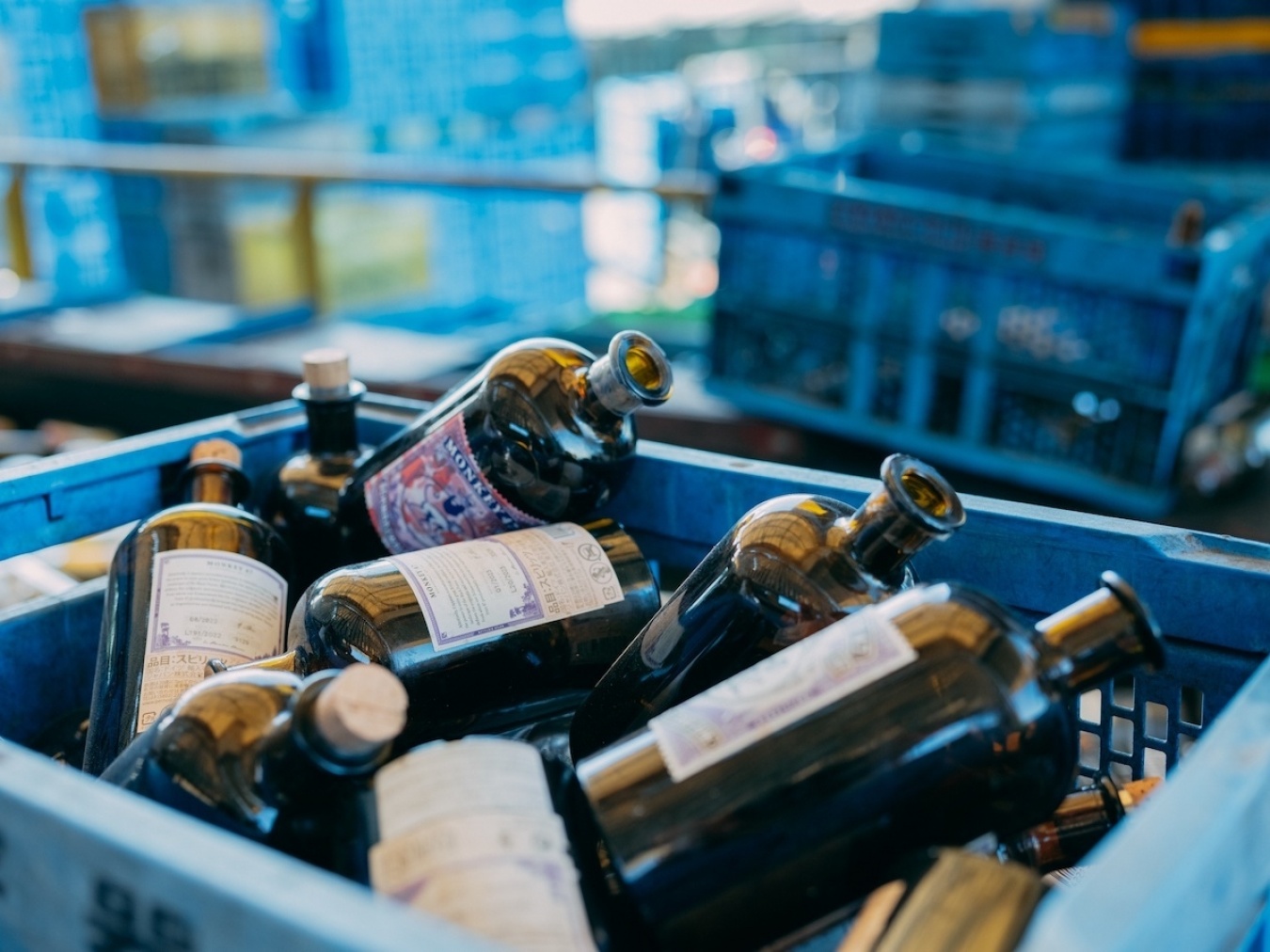
Various brands of 500ml bottles collected at Sanyu, a bottle collection company. From here, the bottles are sorted for washing by the bottle washing company.
Reusable bottles is the most environmentally friendly container
REUNION, whose mission is "to create a system that allows us to continue "tasty" and "fun" products on a sustainable basis," has envisioned the use of reusable bottles to reduce environmental impact since the brand was established. The company's mission is to "create a system that keeps on sustaining 'delicious' and 'enjoyable' food.
The idea started with the simple idea of 'there's a bottle there, so wash it and use it again.' Using reusable bottles lowers the cost of the bottles and sends the message of our 'environmentally conscious manufacturing.
We were also aware that there were no other Japanese spirits brands other than shochu that used reusable bottles, and we hoped that the reuse initiative would spread to the spirits industry as well.
For this reason, we were one of the first companies in the company to start a reusable bottle project.
For example, "REISHI GIN" has a visual design consisting of a pure white main label, neck label, and cap, because this design fits bottles of various shapes and colors.
We chose this white label with the use of reusable bottles in mind."
One year after the launch, we started researching reusable bottles. A year after the launch, we began researching reusable bottles and were introduced to Tobe Shoji, a bottle washing company, by a bar staff member.
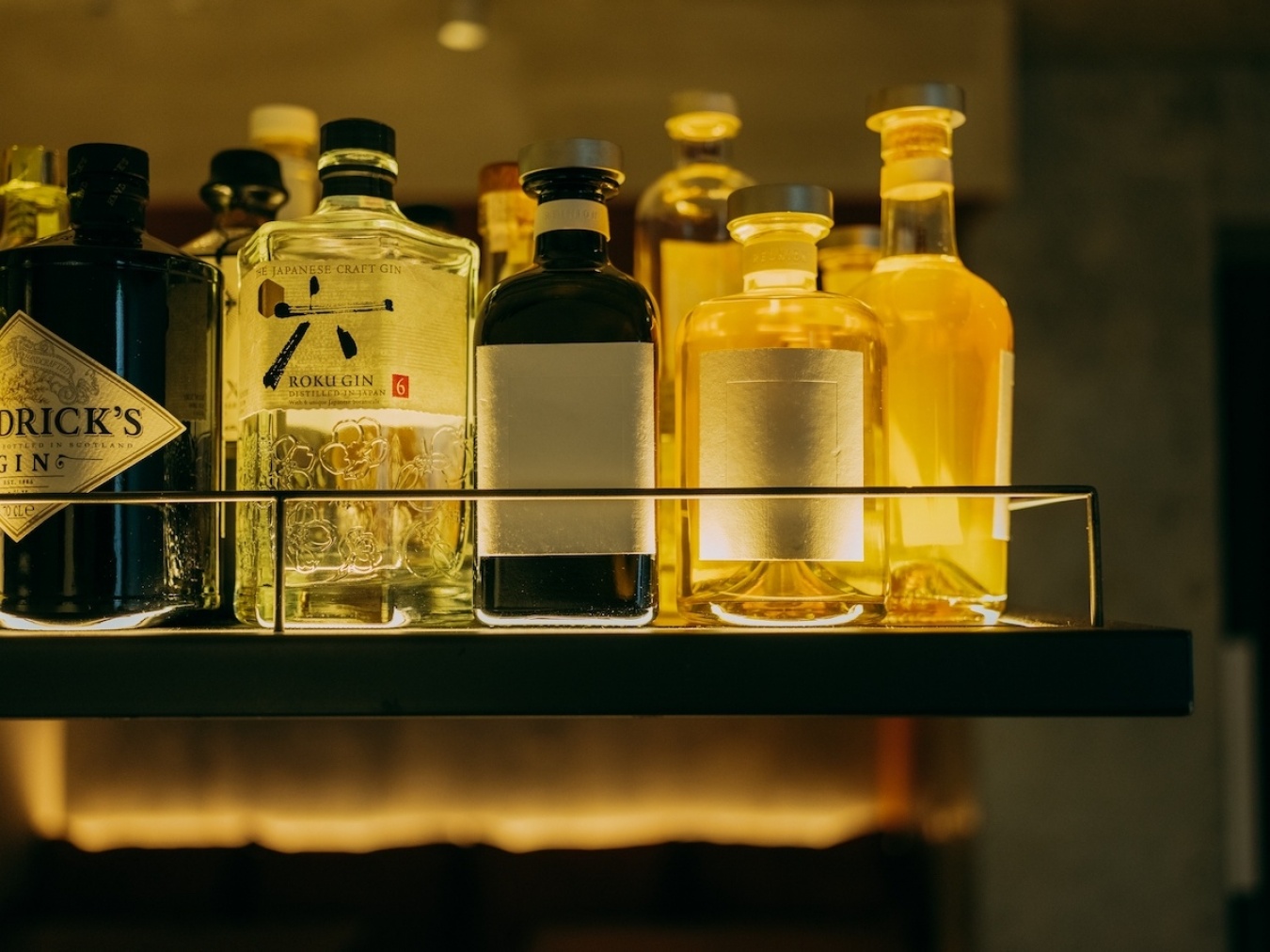
REISHI GIN w/ REUSED BOTTLE" lined up on the back bar. The same label and different shaped bottles are impressive.
The REUNION team immediately went to Tobe Trading.
Until then, I had never even heard of a collection business or a bottle washing business," said Mr. Tobe.
From the first appointment, Chairman Tobe was very attentive and explained the modern reuse flow, the history of reused bottles in Japan, and the state of reuse in the age of the SDGs.
After observing the bottle washing process again, I felt that it was worthwhile for us, as newcomers to the market, to work on this, even though the hurdles are high.
The first step of the Reuse Bottle Project is to collect empty 500ml bottles of REISHI GIN bottles and other brands that REUNION respects from bottle collection businesses, bars, and restaurants. The bottles will then be cleaned at Tobe Shoji's bottle washing plant, inspected, refilled, and labeled at the brewery, and sold as "REISHI GIN w/ REUSED BOTTLE.
The first 150 bottles were released last month. It was immediately sold out on the company's e-commerce site, but is also being sold at cooperating partners such as Ebisu's "unknown," Setagaya Daita's "Quarter Room," and Kumamoto's "Yakoboku".
The novelty of having bottles of various shapes and colors, such as thick and thin neck, brown and clear bottles, all wearing the same label and cap, amidst a lineup of backbars, has attracted many bar aficionados.
The presence of interested customers is encouraging, but what makes us happy is that there are more bartenders than we had imagined who are serious about sustainability.
In fact, many bartenders are reusing used bottles in their own way.
We are also grateful that we were able to build a deep relationship with the bartenders through this project.
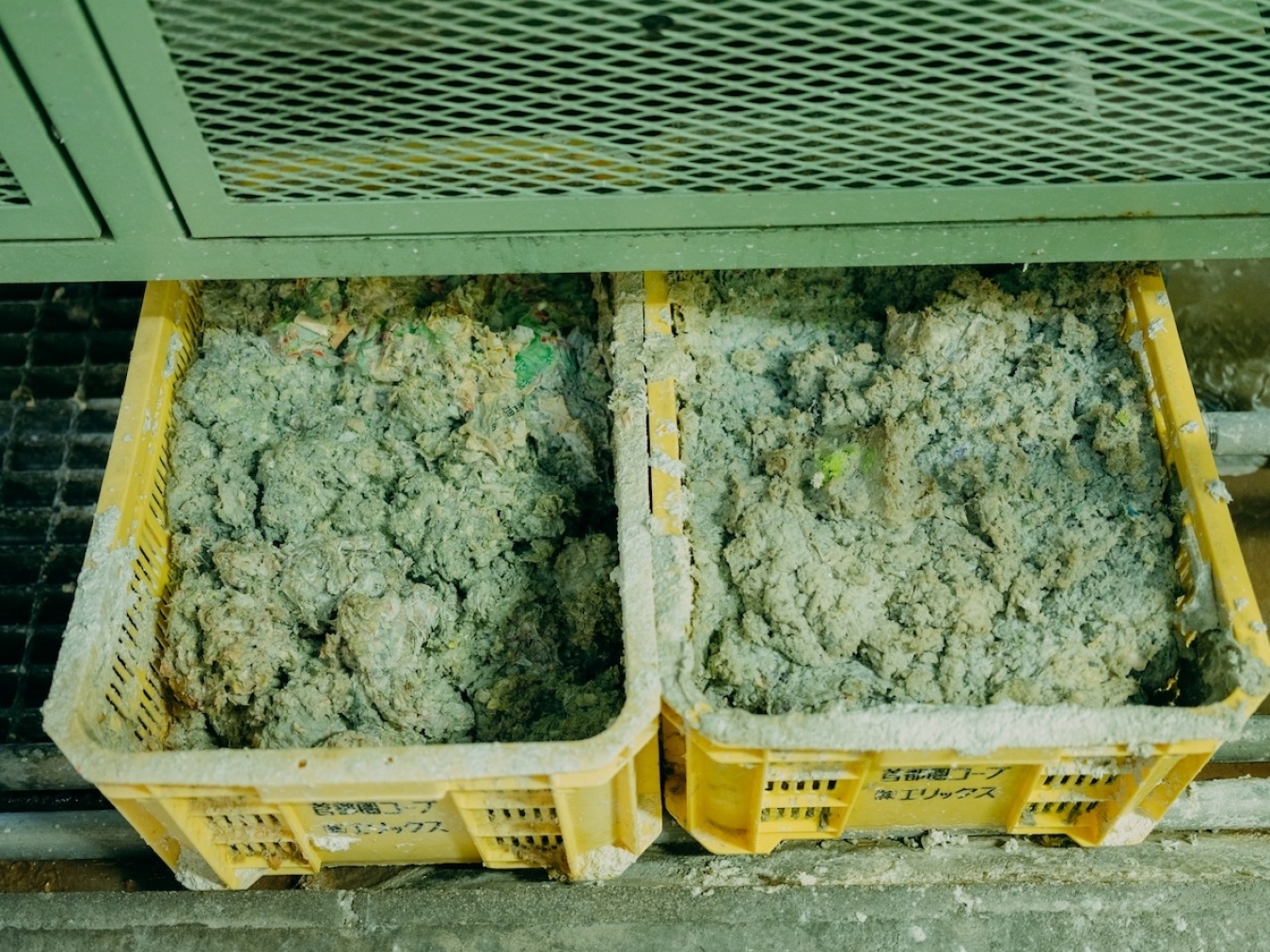
Label scraps removed by Tobe Shoji's large bottle washing machine. Labels with increased adhesive strength or labels with high strength could not be removed by the bottle washing machine, so they were removed one by one by hand to prevent them from peeling off due to condensation or water drops. To increase the reuse rate, labels and glue that are easy to peel off are necessary.
Aiming to revitalize the reuse culture.
Even for Tobe Trading, which boasts a long history, it was unusual to have a project like this one, in which the adoption of reusable bottles was considered even before the brand was established. I was very happy to hear that.
I was very happy to hear that. Encouraged by this, we hope to release around 30 bottles of REISHI GIN w/ REUSED BOTTLE every month.
We will gradually switch to reusable bottles, and eventually all of our products will be made with reusable bottles, and we would like to make people aware that 'REISHI GIN' = reusable bottles," said Hattori.
Tobe Shoji, on the other hand, believes that reducing the time and effort required for production, collection, and cleaning will encourage reuse, and plans to make proposals to the bottle industry to unify standards for sake and shochu bottles, which are similar in shape.
In addition, in order to lower the hurdles to quality standards for reuse, the company will propose and communicate to consumers that they should accept scratches that do not impair the function of the bottle.
Chairman Tobe hopes that consumers will consider scratches on bottles as a medal for repeated reuse.
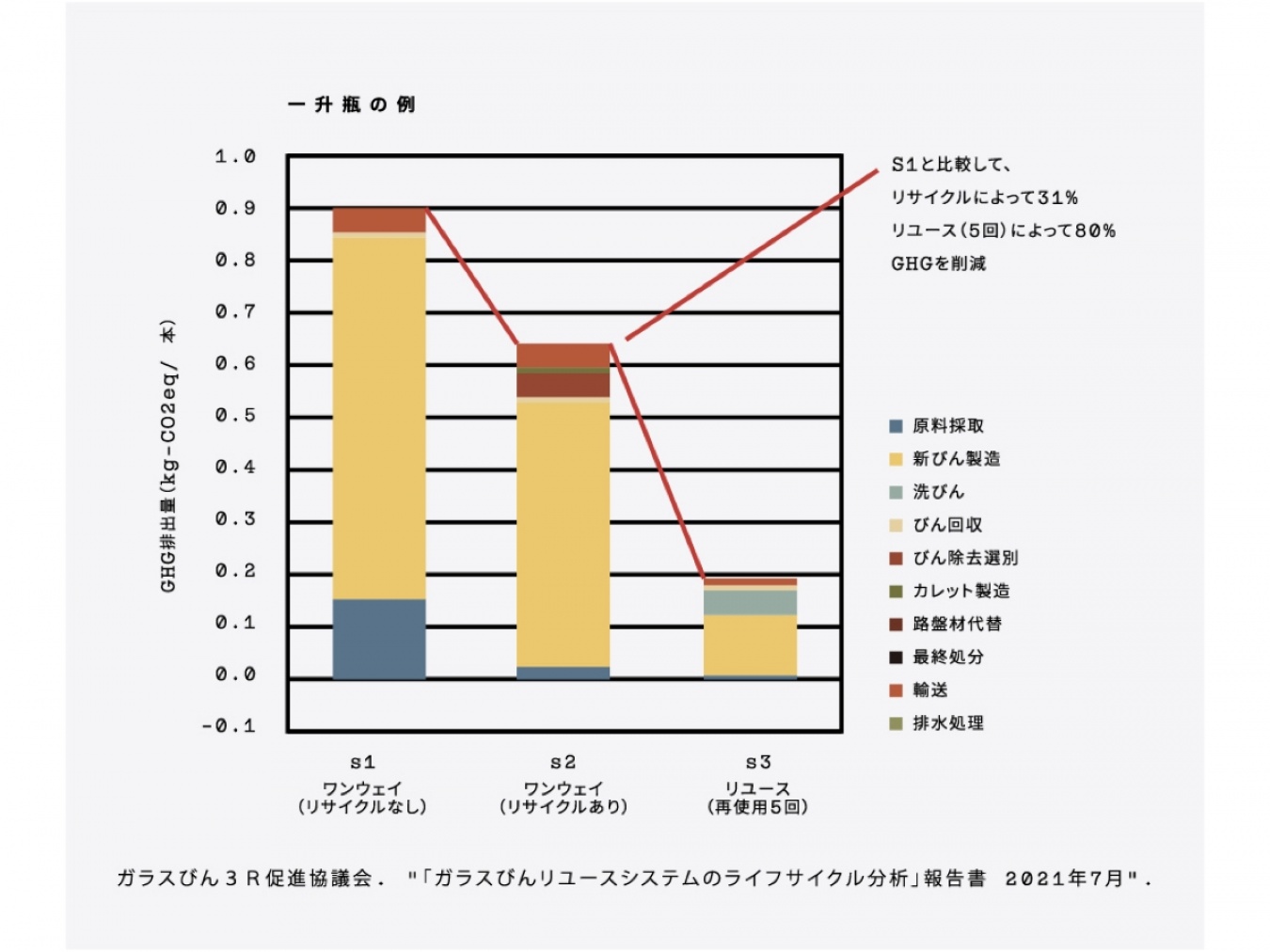
While the number of non-reusable (one-way) containers such as plastic and PET is increasing, returnable bottles are being reevaluated as an environmentally friendly container. Comparing one-way bottles with bottles that have been reused five times, reusable bottles can reduce CO2 emissions by about 80%.
The revival of this reuse culture requires the cooperation of many businesses.
REUNION is also looking for bars, restaurants, bottle collectors, bottle washing companies, and sake breweries (......) to support and cooperate with this project.
For example, we are looking for sealers and label companies to develop label glues suitable for bottle washing, bottle manufacturers to cooperate in the development of reusable bottle products, liquor stores to work with us to develop collection schemes and cooperate in the sale of reusable bottle products, brands to license their bottles for reuse, government agencies, media, etc. We need your help. We hope to receive the cooperation of many people, including liquor stores that will work with us to develop a collection scheme, brands that will cooperate in selling reusable bottles, government agencies, and the media.
We will expand this initiative and increase the percentage of reused bottles in the Japanese market," said Hattori.
If you are a business that would like to support this project, please contact REUNION.
Let's expand the circle of reuse, starting with bars, to the rest of the industry!
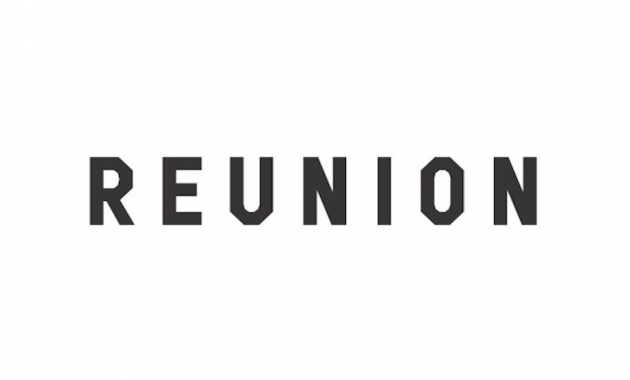
|
 |
|---|---|
| REUNION(WWWE) | |
|
東京都渋谷区猿楽町30-3 TEL:非公開 URL:https://re-union.world hello@wwwe.jp |
- Drink Planet >
- PICK UP >
- Sustainability from a bar's perspective REISHI GIN launches a reusable bottle project! - Part 2 -
![[Drink Planet] Cocktail portal site for bartenders](/img/common/logo.png)
![[Drink Planet] Cocktail portal site for bartenders](/img/common/logo-l.png)
